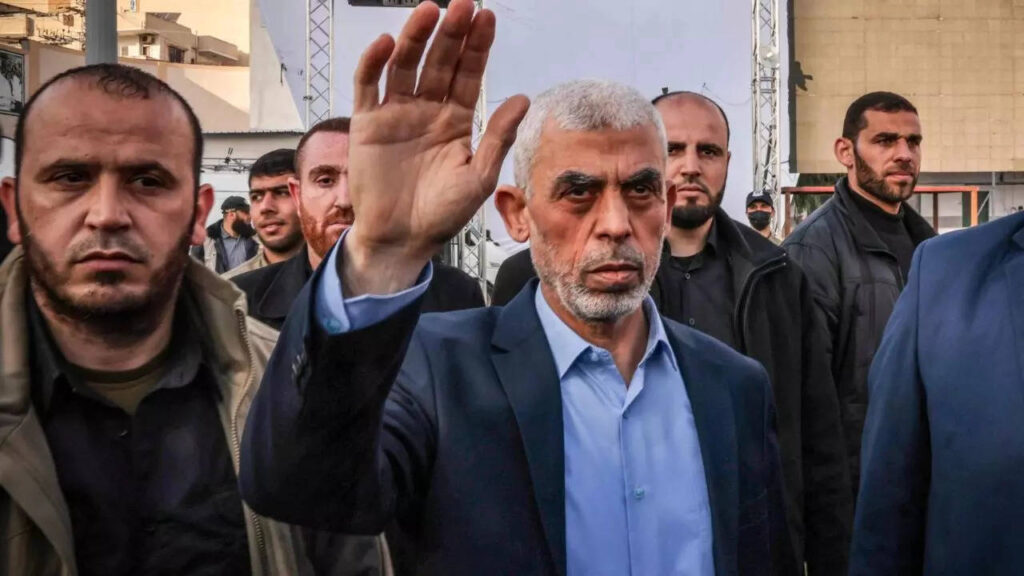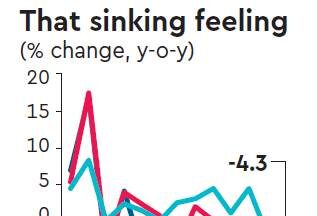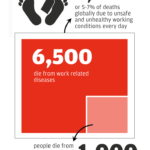By Girish Linganna
Yahya Sinwar, the leader of Hamas’s political wing in Gaza, has gone into hiding due to the intense efforts by Israeli forces to locate his whereabouts. Sinwar, who is recognizable by his distinctive white hair and black eyebrows, is considered one of the most wanted men by Israel. He is held responsible, along with others, for a raid in southern Israel on October 7th, which resulted in the death of around 1,200 people and the kidnapping of over 200 individuals. Israeli authorities have vowed to eliminate Sinwar, with the IDF spokesman and Chief of Staff both declaring him a “dead man.”
According to the IDF Chief of Staff, Herzi Halevi, Yahya Sinwar made the decision to carry out the horrific attack, making him and his associates marked for death (whom the IDF term them as dead man). Also Mohammed Deif, the leader of Hamas’s military wing, is believed to have been involved in planning the October 7 attack.
However, it is also likely that Yahya Sinwar, second-in-command of Hamas, played a role in the attack. Israel believes that Sinwar is hiding underground in Gaza, communicating in secrecy to avoid being tracked.
Yahya Sinwar, 61 years, also known as Abu Ibrahim, was born in the Khan Younis refugee camp in the southern Gaza Strip. His parents were originally from Ashkelon but became refugees during the war that followed Israel’s establishment in 1948, a period known as the “al-Naqba” or the Catastrophe.
Ashkelon is a city located in southern Israel along the Mediterranean coast. The year 1948 marked a significant period in Palestinian history known as the “al-Naqba” or the Catastrophe. It refers to the mass displacement and loss of homeland experienced by Palestinians as a result of the war that followed the establishment of the state of Israel. Sinwar received his education at Khan Younis Secondary School for Boys and later earned a bachelor’s degree in Arabic language from the Islamic University of Gaza.
As per BBC, Ehud Yaari, a fellow at the Washington Institute for Near East Policy who interviewed Sinwar in prison four times, during that period Khan Younis was a stronghold of support for the Muslim Brotherhood.
Khan Younis is a city located in the southern part of the Gaza Strip, a small territory on the eastern coast of the Mediterranean Sea.The Muslim Brotherhood is an Islamic political and social movement that was founded by Hassan al-Banna in Egypt in 1928. It advocates for the establishment of Islamic law and aims to unify Muslims politically and socially. The group has branches and supporters in various countries around the world.
According to Yaari, the Islamist group gained significant traction among young individuals in the impoverished refugee camp, becoming a major movement. This influence would later be mirrored in Hamas, where the Muslim Brotherhood assumed a similar significance.
Sinwar’s initial arrest occurred in 1982 when he was just 19 years old, on charges of engaging in “Islamic activities.” He was arrested again in 1985. During this period, he gained the trust and confidence of Sheikh Ahmed Yassin, the founder of Hamas.
Kobi Michael, a senior researcher at the Institute for National Security Studies in Tel Aviv, states that Sinwar and Sheikh Ahmed Yassin developed a strong and intimate bond as per the report published by BBC. This close relationship with the spiritual leader of Hamas would eventually elevate Sinwar’s status within the organization, creating a significant influence known as the “halo effect.”
The “halo effect” refers to a psychological phenomenon where a positive perception or impression of one quality or trait of a person influences the perception of their overall character or capabilities. In the context of Sinwar, his close association with Sheikh Ahmed Yassin gave him a favourable reputation and enhanced his influence within Hamas.
Just two years after the establishment of Hamas in 1987, Sinwar, at the young age of 25, founded the notorious internal security organization of the group called al-Majd. Known for cracking down on supposed morality offenses, such as targeting shops that sold “sex videos,” al-Majd also carried out operations to track and eliminate individuals suspected of collaborating with Israel.
According to Yaari, Sinwar was accountable for several brutal executions of individuals suspected of cooperating with Israel. He personally carried out some of these killings and took pride in discussing them with Yaari and others.
Israeli officials have claimed that Sinwar later admitted to carrying out a gruesome punishment against a suspected informant. He allegedly convinced the individual’s brother to bury him alive and then personally used a spoon, instead of a spade, to ensure his demise. According to Yaari, Sinwar possesses a charismatic influence that attracts followers, as well as instills fear in those who dare to challenge him.
In 1988, Sinwar was allegedly involved in planning the abduction and killing of two Israeli soldiers. He was arrested and subsequently convicted by Israel, receiving four life sentences for the murder of 12 Palestinians. For a considerable portion of his adult life, spanning over 22 years from 1988 to 2011, Sinwar was imprisoned by the Israeli authorities. His time in prison, including periods of isolation, seems to have intensified his radicalization.
According to Yaari, Sinwar established his authority through ruthless methods, employing force and asserting his leadership among the inmates. He negotiated with prison authorities on behalf of the prisoners and maintained discipline within the imprisoned community.
An Israeli government evaluation of Sinwar during his incarceration depicted him as “cruel, authoritative, influential, and possessing exceptional endurance, cunning, and manipulative abilities.” The assessment further noted his tendency to keep secrets even within the prison population, while also highlighting his capability to rally and captivate crowds.
Based on his interactions and observations, Yaari described Sinwar as a psychopath but cautioned against oversimplifying his character. Yaari emphasized that Sinwar is a complex and enigmatic figure, possessing cunning and strategic intelligence. Sinwar could effortlessly switch between displaying personal charm and expressing extremist views.
Yaari recalls instances where Sinwar would joke about Israel’s destruction but playfully suggest an exception might be made for him (Yaari), highlighting his ability to employ humor even amidst controversial statements.
During his time in prison, Sinwar had dedicated himself to mastering the Hebrew language, enabling him to read Israeli newspapers. According to Yaari, Sinwar consistently preferred conversing in Hebrew with him, despite Yaari’s proficiency in Arabic. The motive behind this preference, Yaari believes, was Sinwar’s desire to enhance his language skills by engaging with someone who had a more advanced understanding of Hebrew than the prison wardens.
Sinwar was released from prison in 2011 as part of a prisoner exchange agreement. This deal involved the release of 1,027 Palestinian and Israeli Arab prisoners in exchange for the freedom of IDF soldier Gilad Shalit, who had been held captive for five years. Interestingly, Sinwar’s brother, a senior Hamas military commander, was among those involved in the kidnapping of Shalit. Since his release, Sinwar has publicly advocated for further abductions of Israeli soldiers.
By this time, Israel had ended its occupation of the Gaza Strip, and Hamas had assumed control after winning an election and eliminating its rivals, namely Yasser Arafat’s Fatah party, through violent means such as throwing their members off tall buildings.
Michael states that when Sinwar returned to Gaza, he was accepted as a leader due to his prestige as a founding member of Hamas and his years spent in Israeli prisons. Sinwar’s reputation as someone who had killed people with his own hands also instilled fear in people. He was described as brutal, aggressive, and charismatic. He may not be a skilled orator, but his speaking style is compared to someone from the Mob.
After leaving prison, Sinwar formed an alliance with the Izzedine al-Qassam Brigades and chief of staff Marwan Issa. He became a member of Hamas’s Political Bureau in 2013 and its head in 2017.Sinwar’s younger brother Mohammed also played a role in Hamas and was declared dead in 2014, though there are reports suggesting he may still be alive and involved in Hamas’s military activities underground. Sinwar gained a reputation for being ruthless and violent, earning him the nickname “The Butcher of Khan Younis.”
According to Yaari, he is known for imposing harsh discipline and those who disobey him risk their lives. There are reports that Sinwar was involved in the detention, torture, and murder of a fellow Hamas commander accused of misappropriation and homosexuality.
In 2018, he expressed support for Palestinians breaking through the border fence separating Gaza Strip and Israel in protest of the US embassy move from Tel Aviv to Jerusalem. Sinwar has also survived an assassination attempt by Palestinians loyal to the rival Palestinian Authority.
Despite his reputation, there have been instances where he has shown pragmatism, supporting temporary ceasefires with Israel, prisoner exchanges, and reconciliation with the Palestinian Authority. Some opponents have even criticized him for being too moderate.
Many people in Israel’s defense and security establishment regret the decision to release Sinwar from prison as part of a prisoner exchange. Israelis believed that by offering economic incentives and more work permits to Hamas, the group would lose its desire for war. However, this turned out to be a severe misjudgement. Sinwar does not prioritize improving Gaza’s economic situation or social services; he sees himself as the person who will free Palestine.
Sinwar was classified as a “Specially Designated Global Terrorist” by the US State Department in 2015. His residence and workplace in the Gaza Strip were targeted by Israeli airstrikes in May 2021. In April 2022, during a televised speech, he urged individuals to engage in acts of aggression against Israel using any means at their disposal.
Experts have identified him as a significant individual who connects Hamas’s political division with its armed group, the Izzedine al-Qassam Brigades, which orchestrated the attacks in southern Israel on October 7th.
On 14 October, an Israeli military spokesperson named Lt Col Richard Hecht referred to Sinwar as “the face of evil.” He also stated that they have their sights on Sinwar and his entire team and that they will eventually apprehend him.
Sinwar has a close relationship with Iran, which is unusual considering that Iran is a Shia country and Hamas is a Sunni Arab organization. However, they both share a common goal of ending the existence of Israel and “liberating” Jerusalem from Israeli control.
They have joined forces and are working together. Iran provides funding, training, and weapons to Hamas, helping them build up their military strength and acquire a large arsenal of rockets. These rockets are then used to target Israeli towns.
The key issue is who will assume control in Gaza among Hamas leaders and whether they can effectively prevent it from being utilized as a base for launching attacks on Israel. This is crucial in order to avoid provoking a similar cycle of extensive retaliation and devastation that has just taken place. (IPA Service)
(The author is a Defence, Aerospace & Political Analyst based in Bengaluru.)




 Three Million Workers Die Every Year Due To Work Related Accidents And Diseases
Three Million Workers Die Every Year Due To Work Related Accidents And Diseases 